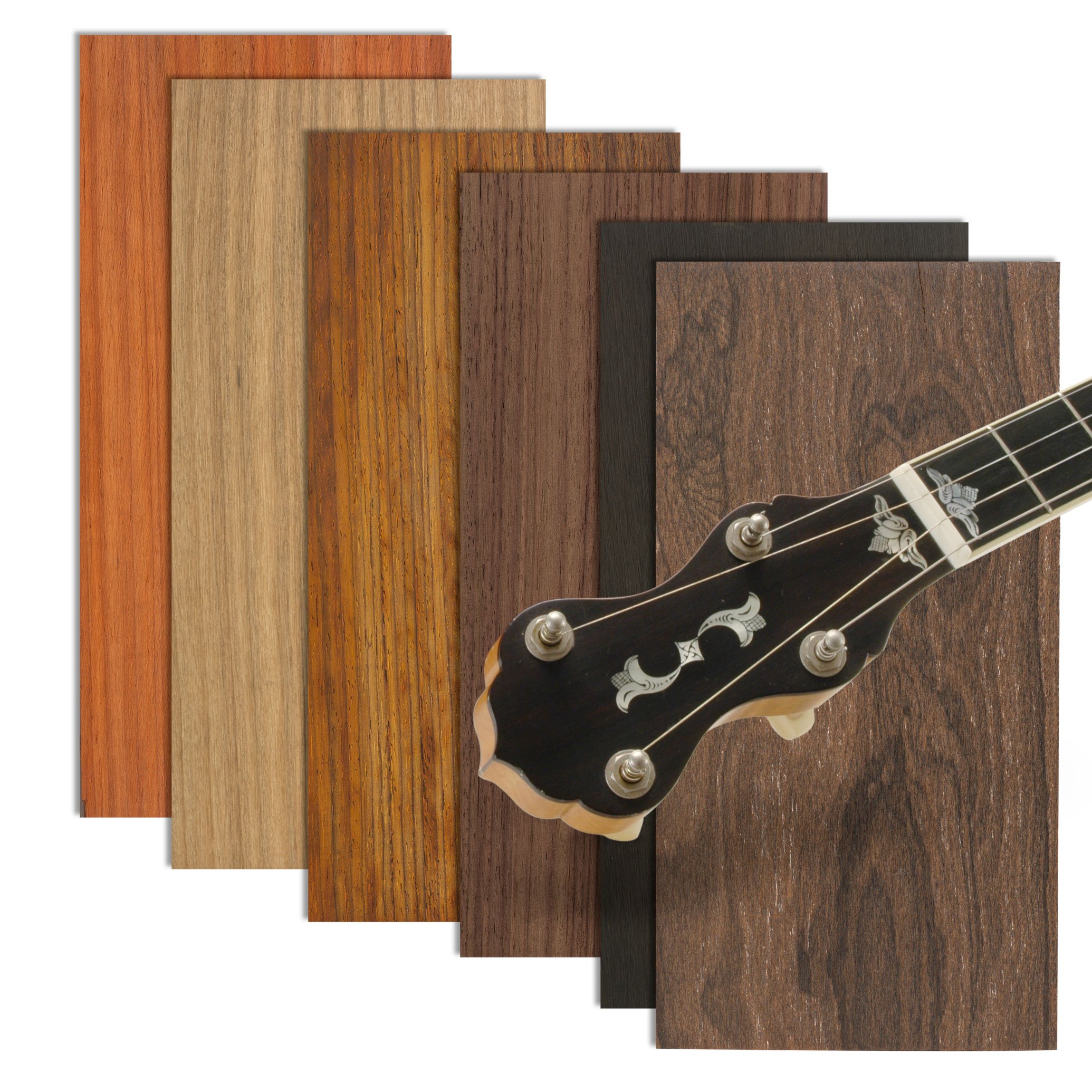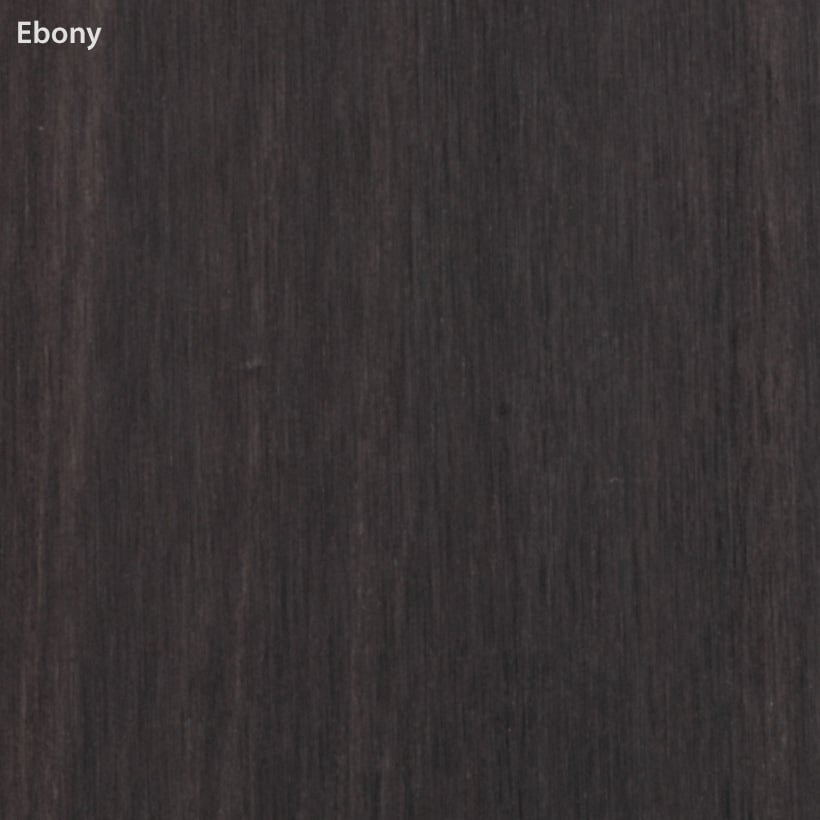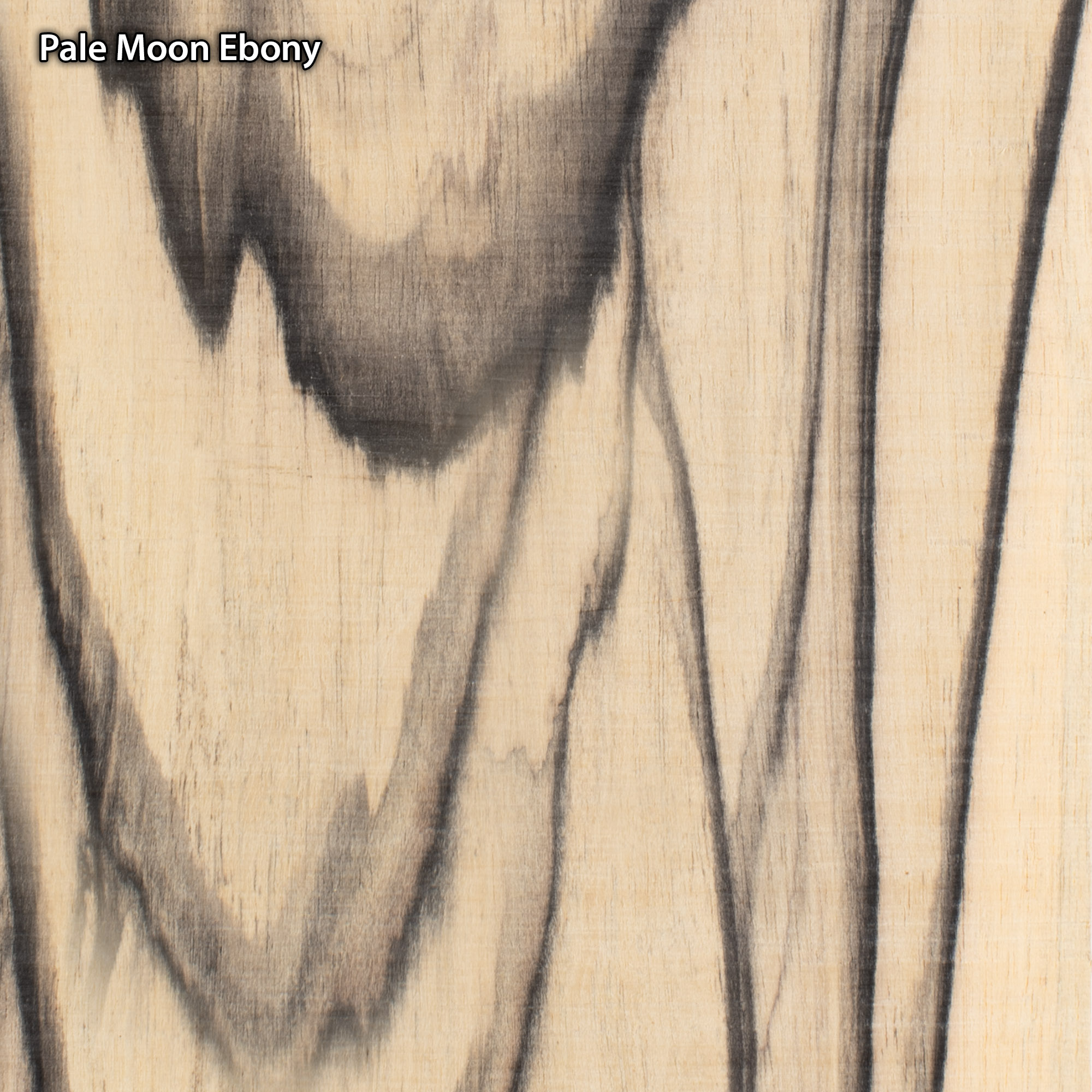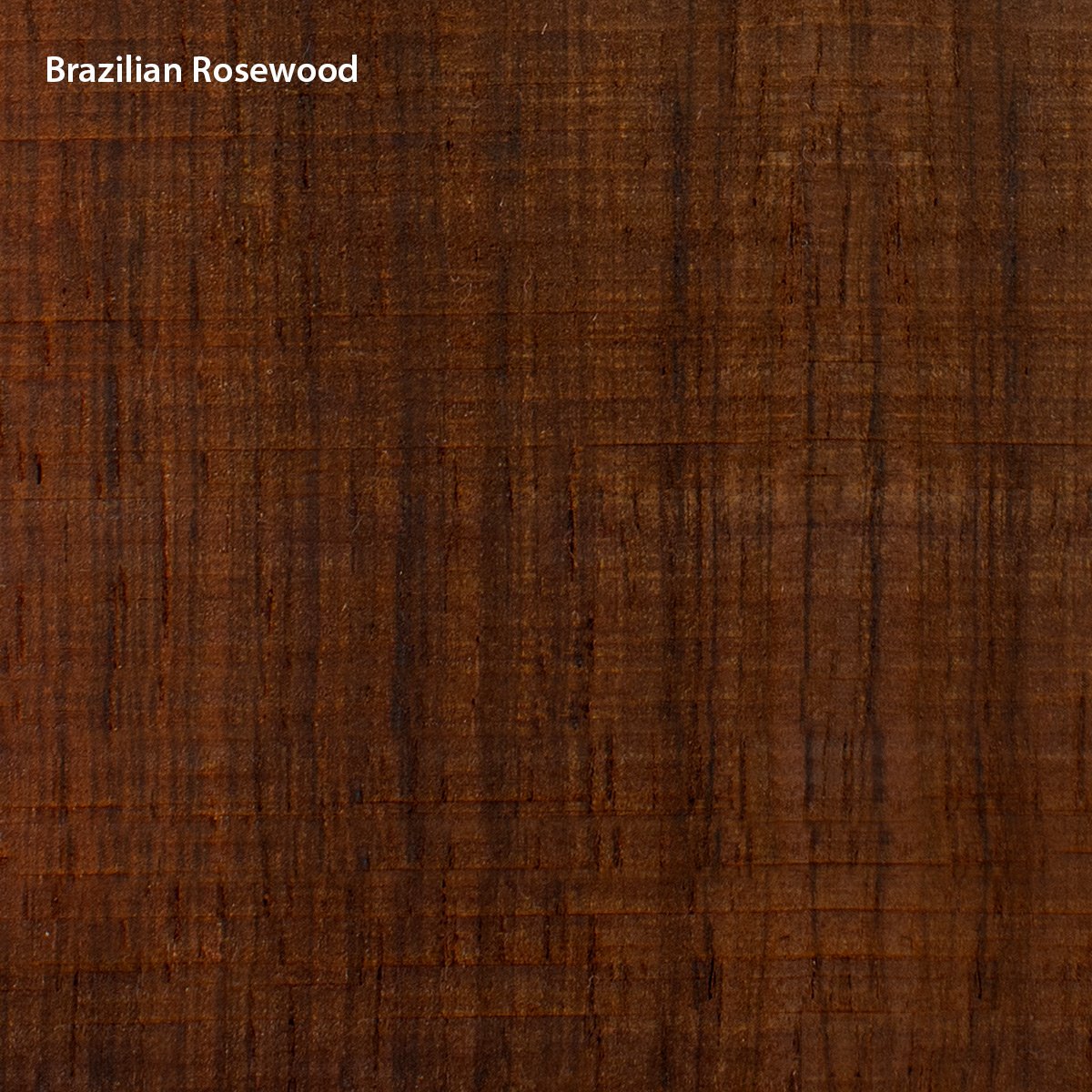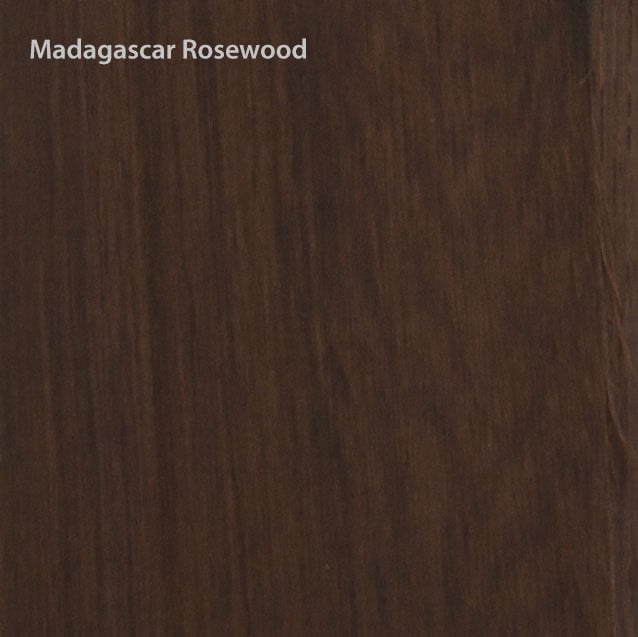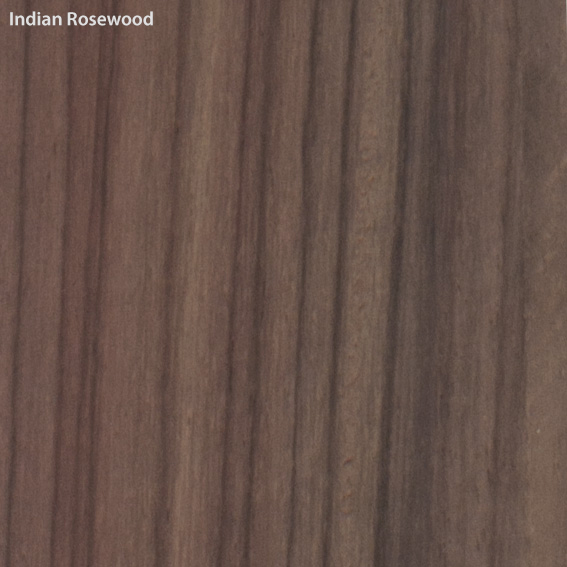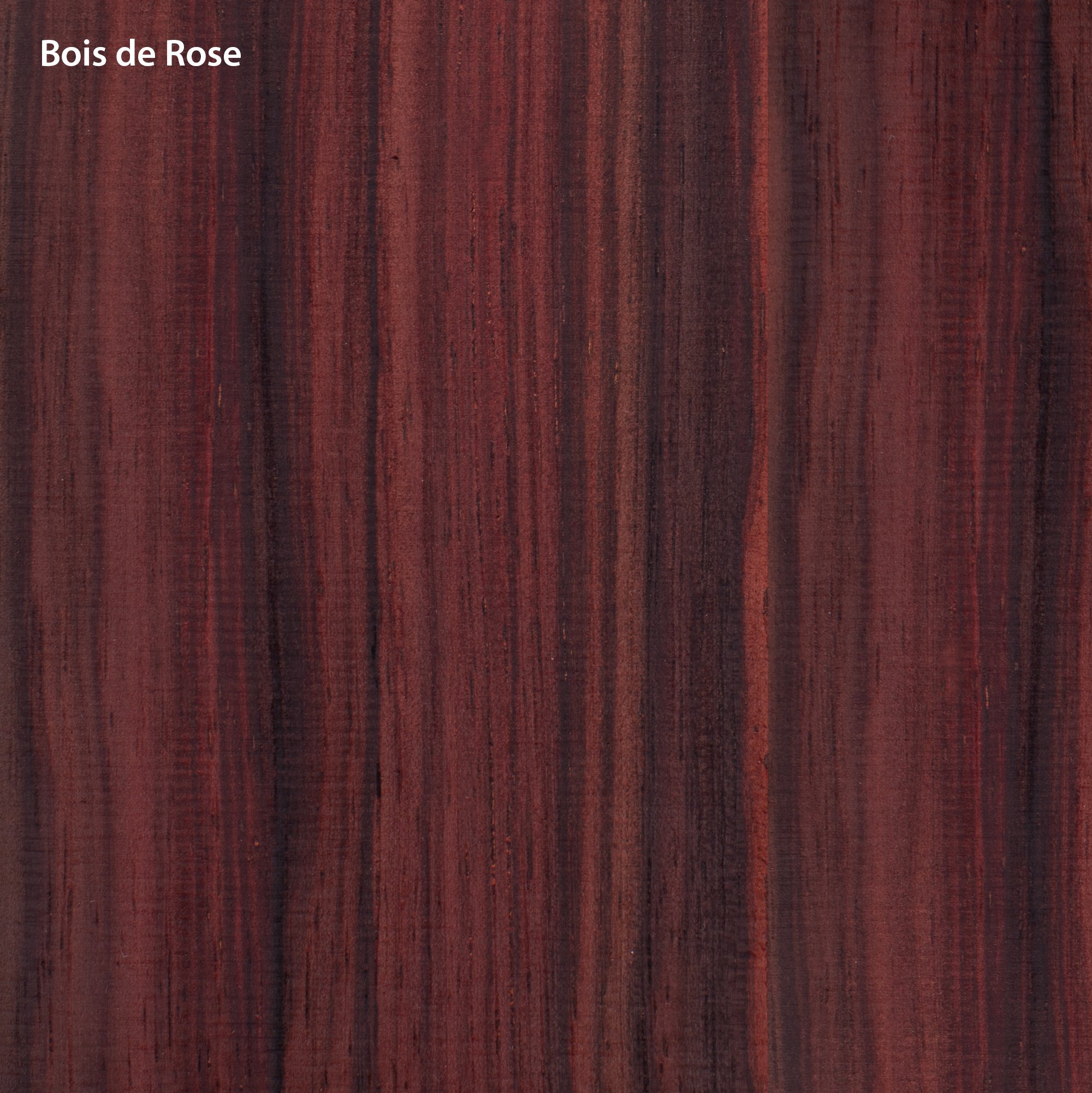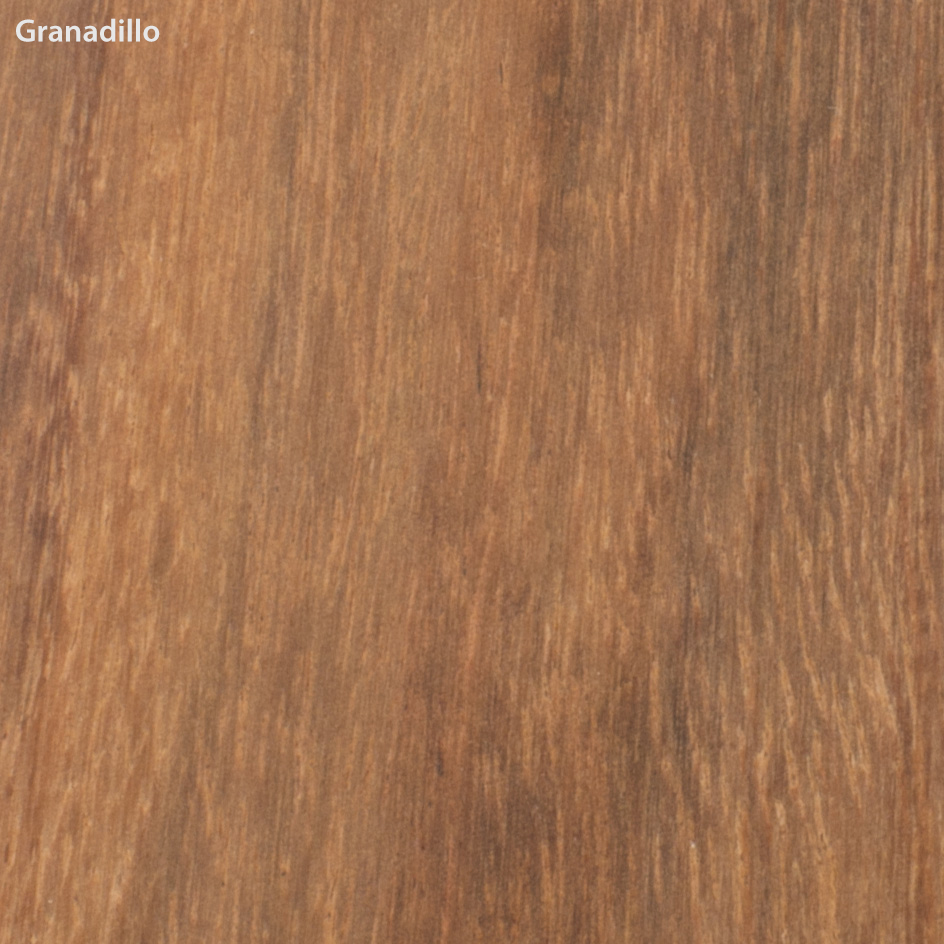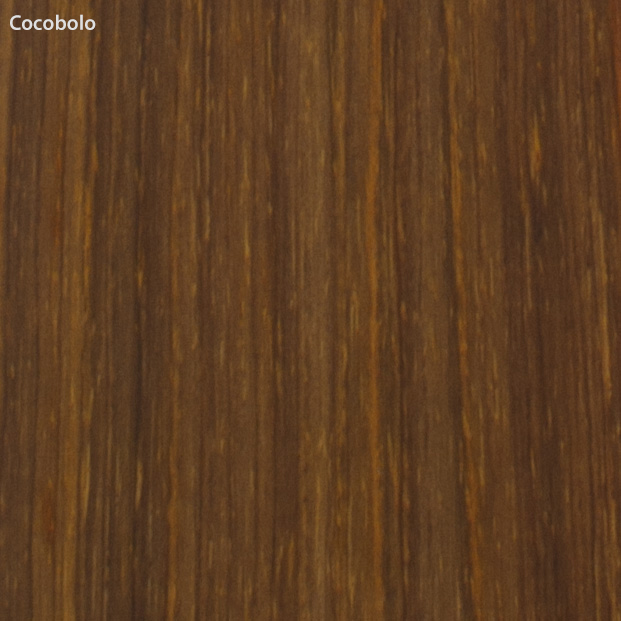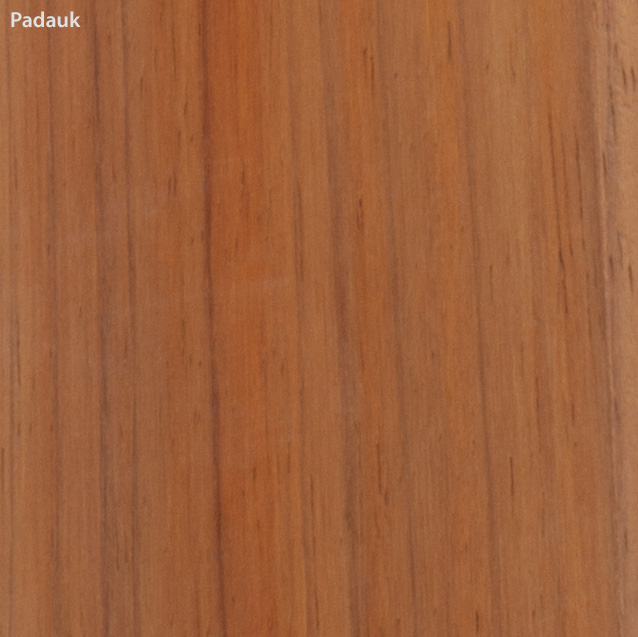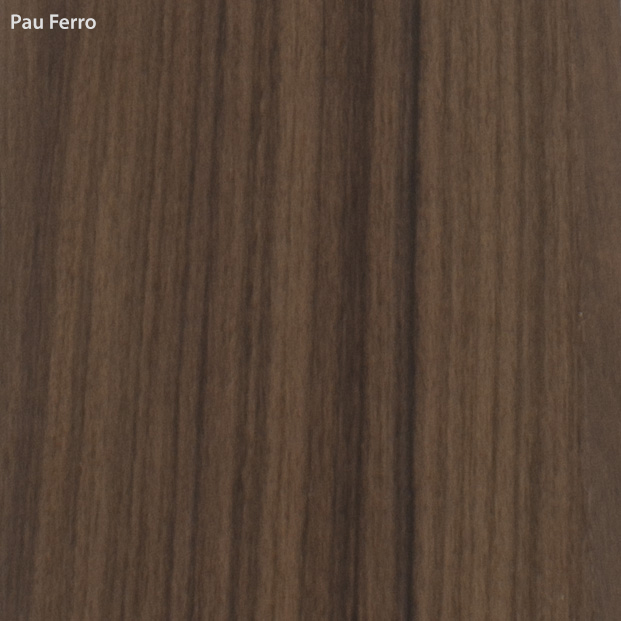Peghead Overlay Veneer
(72)Get the right look for your headstock
The peghead overlay is the face of your stringed instrument: the finishing touch of quality. Our veneers are large enough for guitar, banjo or mandolin. Classic or exotic, our high quailty veneers will help you define the final look of your custom instrument.
Peghead Overlay Veneer
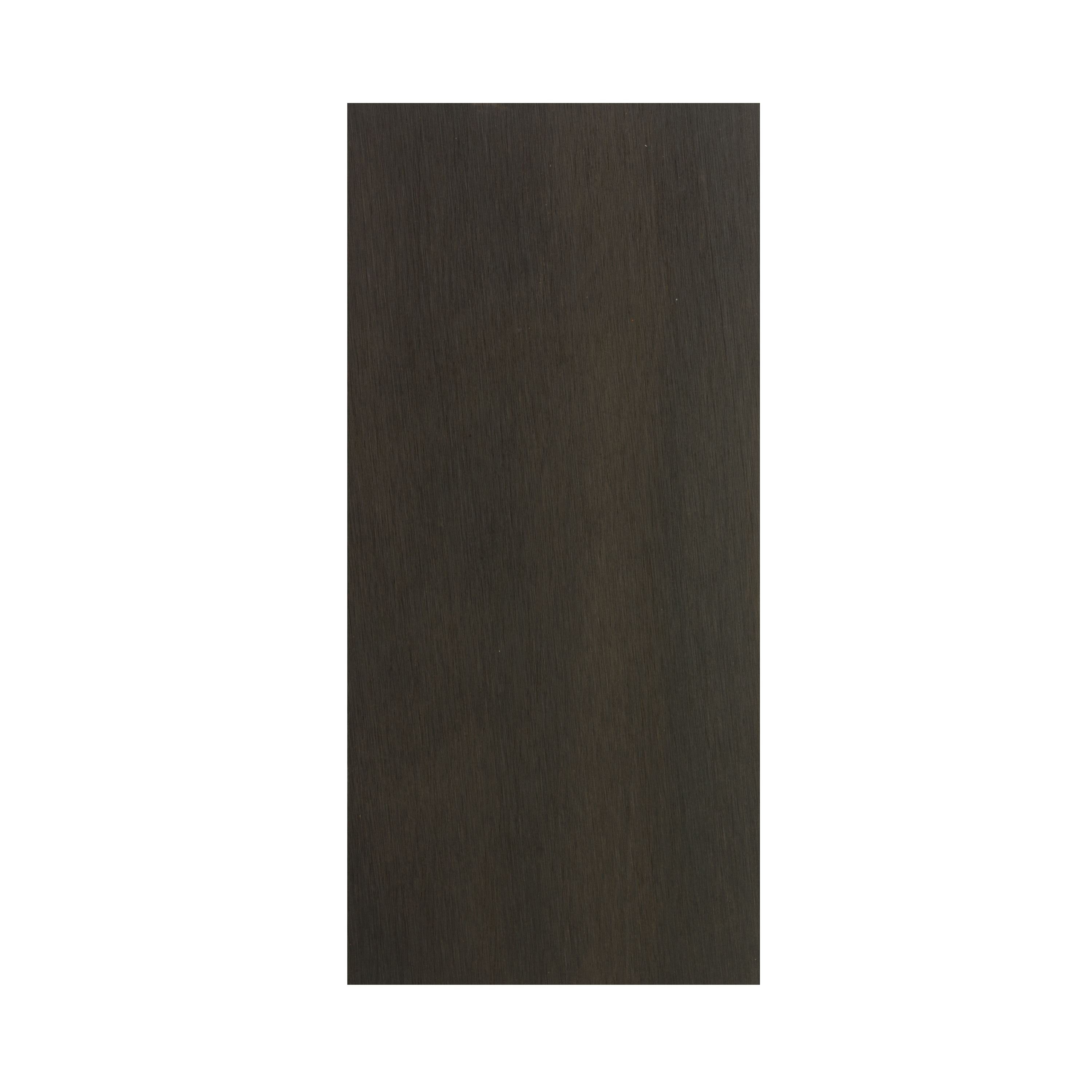
Diospyros crassiflora
Dimensions:
3-1/2" x 7" x 1/8" (89mm x 178mm x 3.175mm)
Unsanded
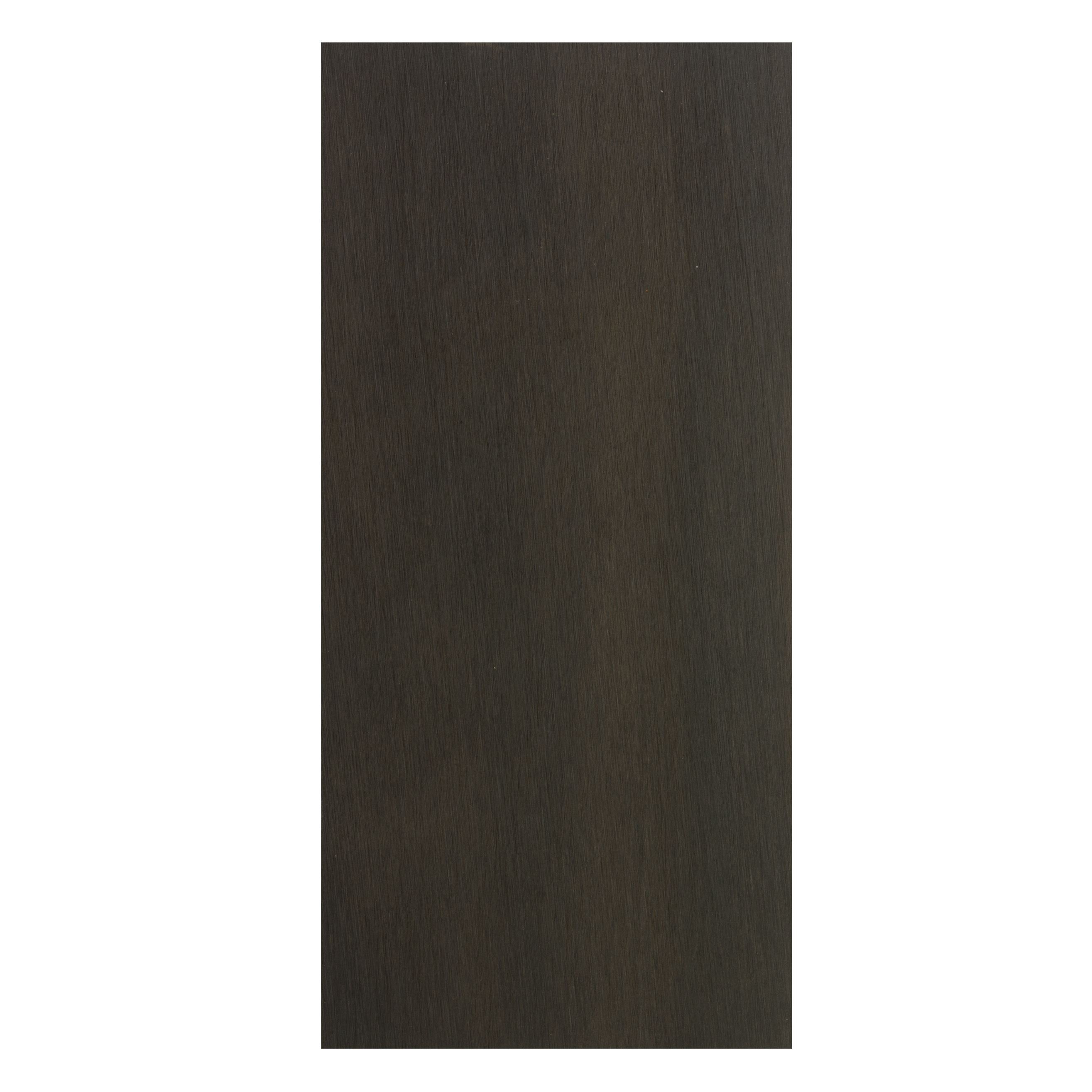
Diospyros crassiflora
Dimensions:
3-7/8" x 7-7/8" x 3/32" (98.42mm x 200mm x 2.38mm)
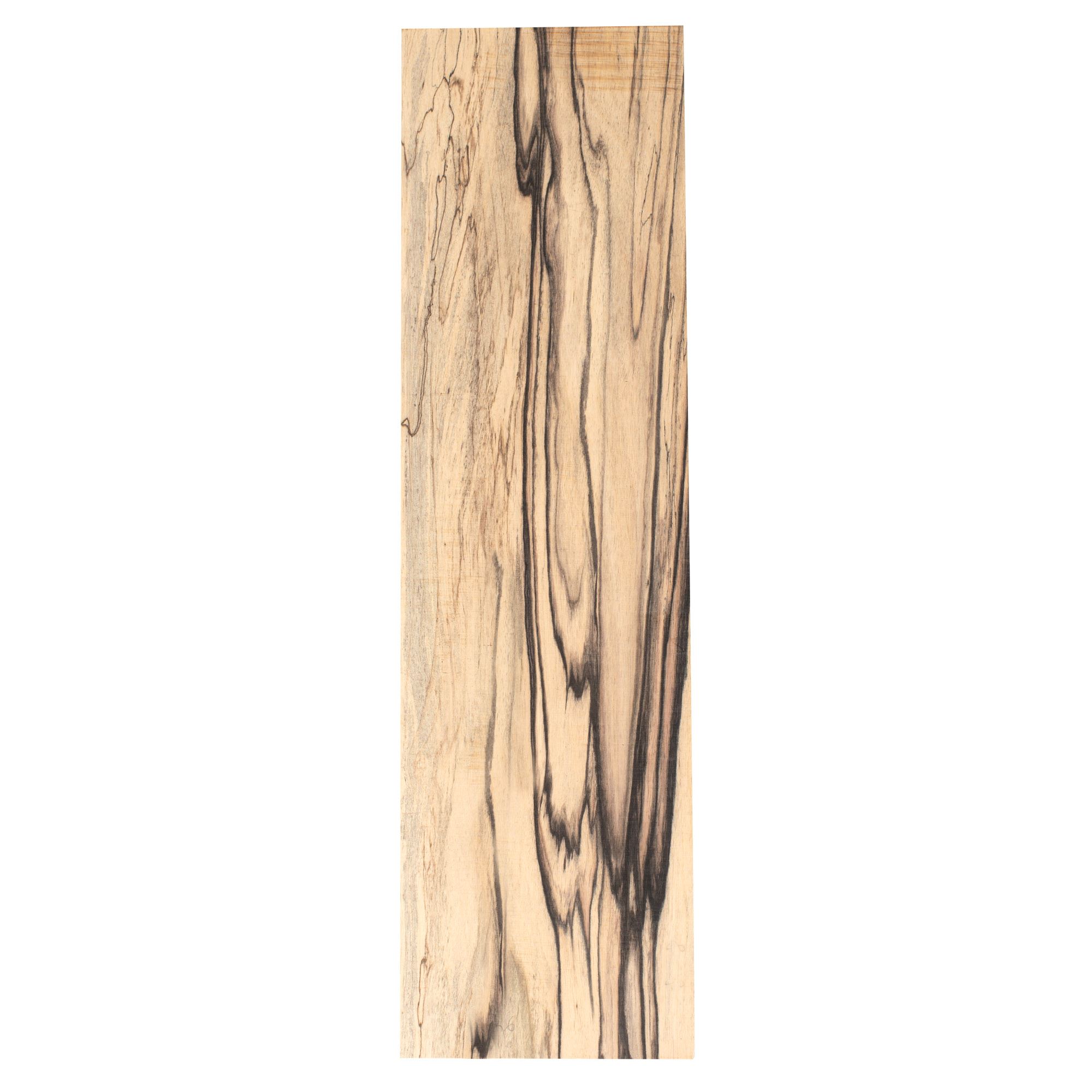
Diospyros malabarica
Dimensions:
3-3/4" x 12-1/2" x 5/32" (95.3mm x 317.5mm x 3.8mm)
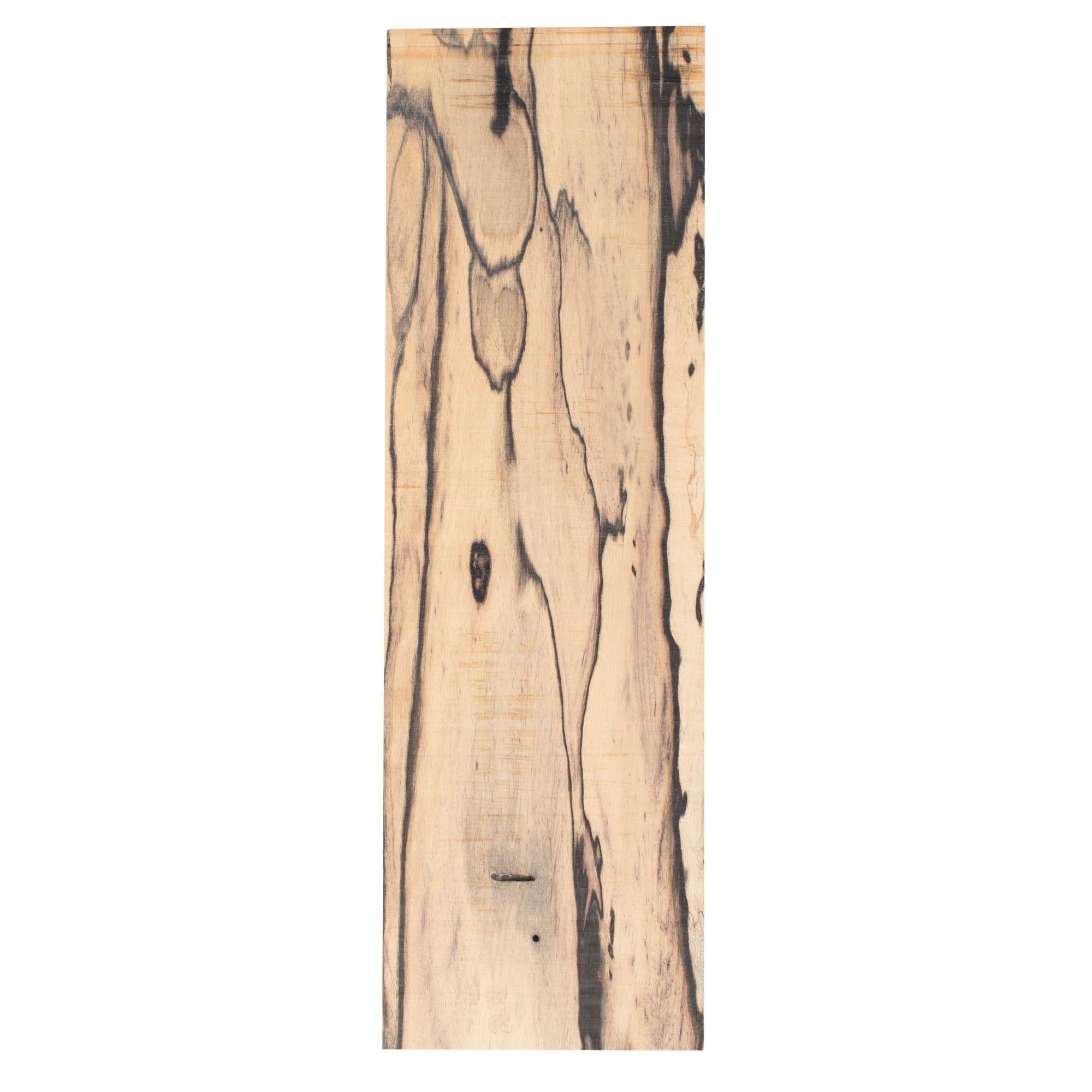
Diospyros malabarica
Dimensions:
3-3/4" x 12-1/2" x 5/32" (95.3mm x 317.5mm x 3.8mm)
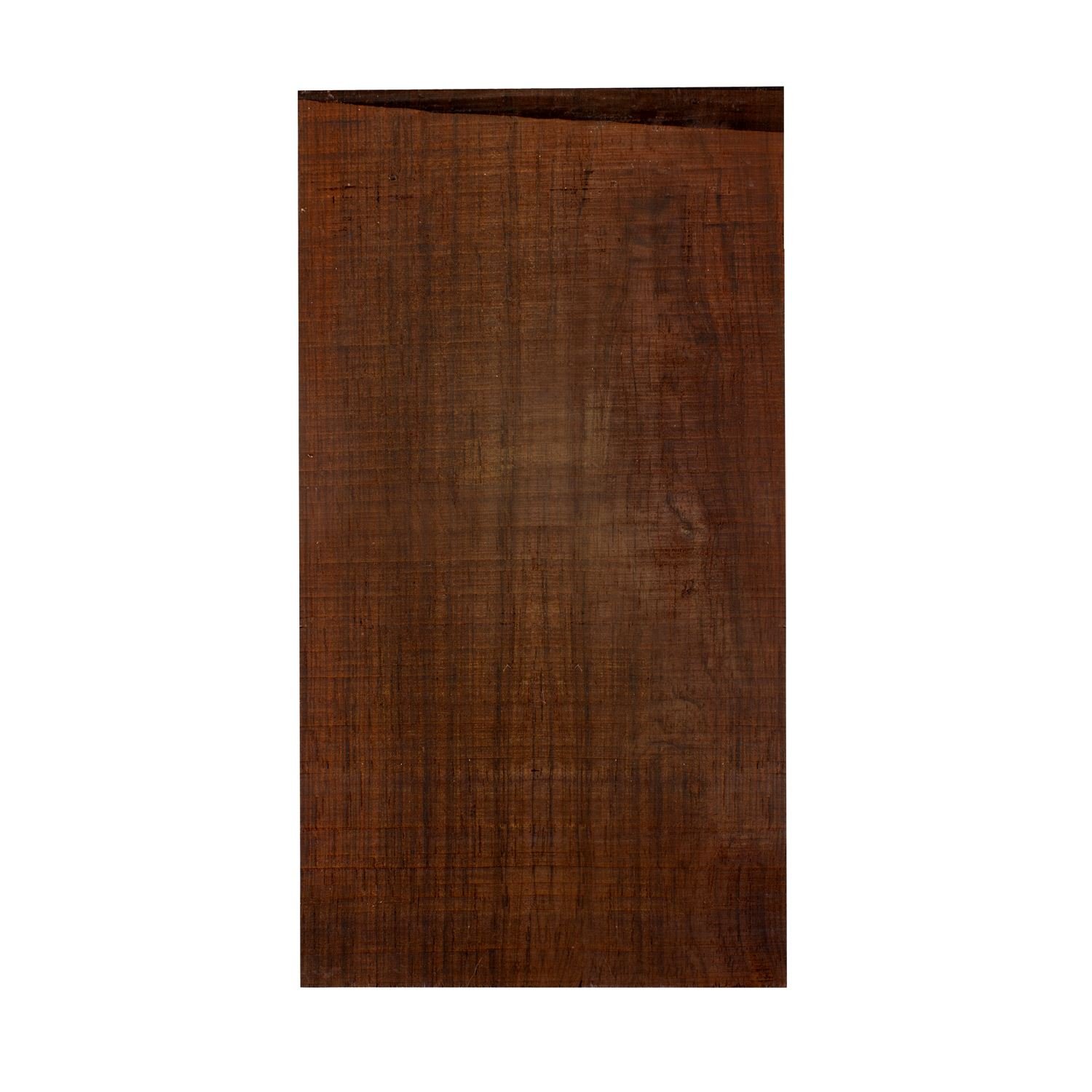
Dalbergia nigra
Dimensions:
4" x 8" x 3/16" (101.6mm x 203.2mm x 4.76mm)
Cannot ship outside USA
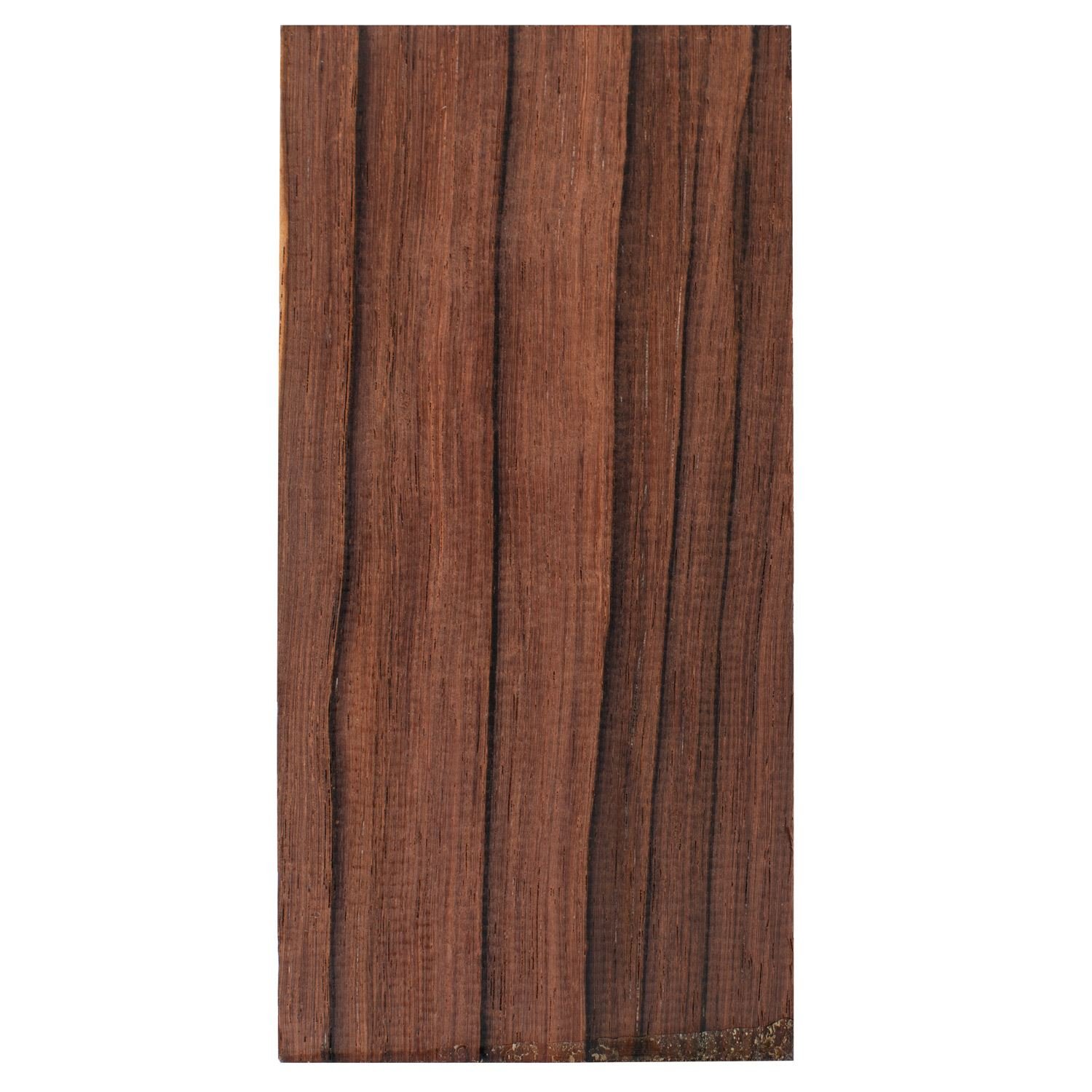
Dalbergia baroni
Dimensions:
4" x 7-7/8" x 5/32" (100mm x 200mm x 4mm)
Cannot ship outside USA
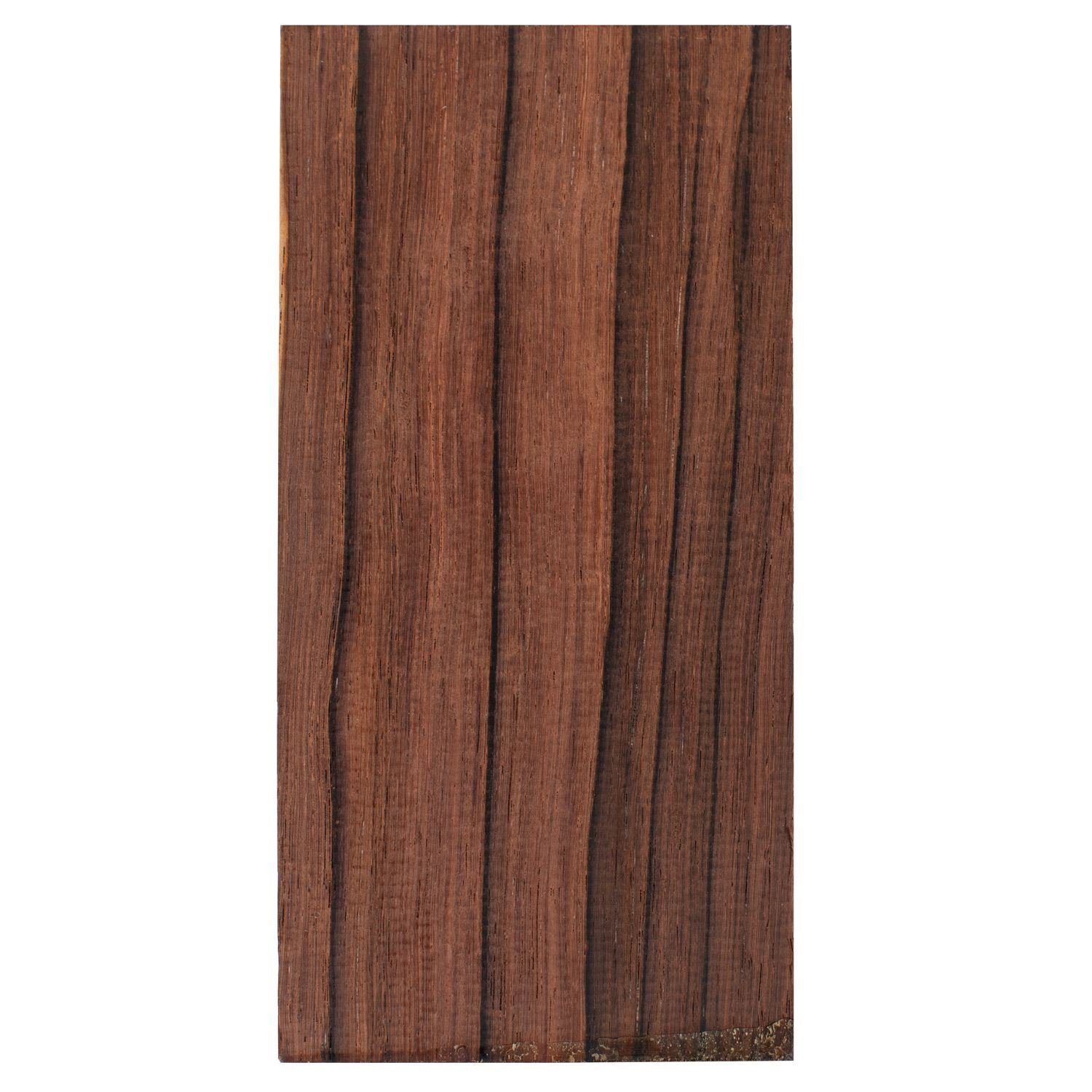
Dalbergia baroni
Dimensions:
4" x 8" x 3/16 (101.6mm x 203.2mm x 4.76mm)
Cannot ship outside USA
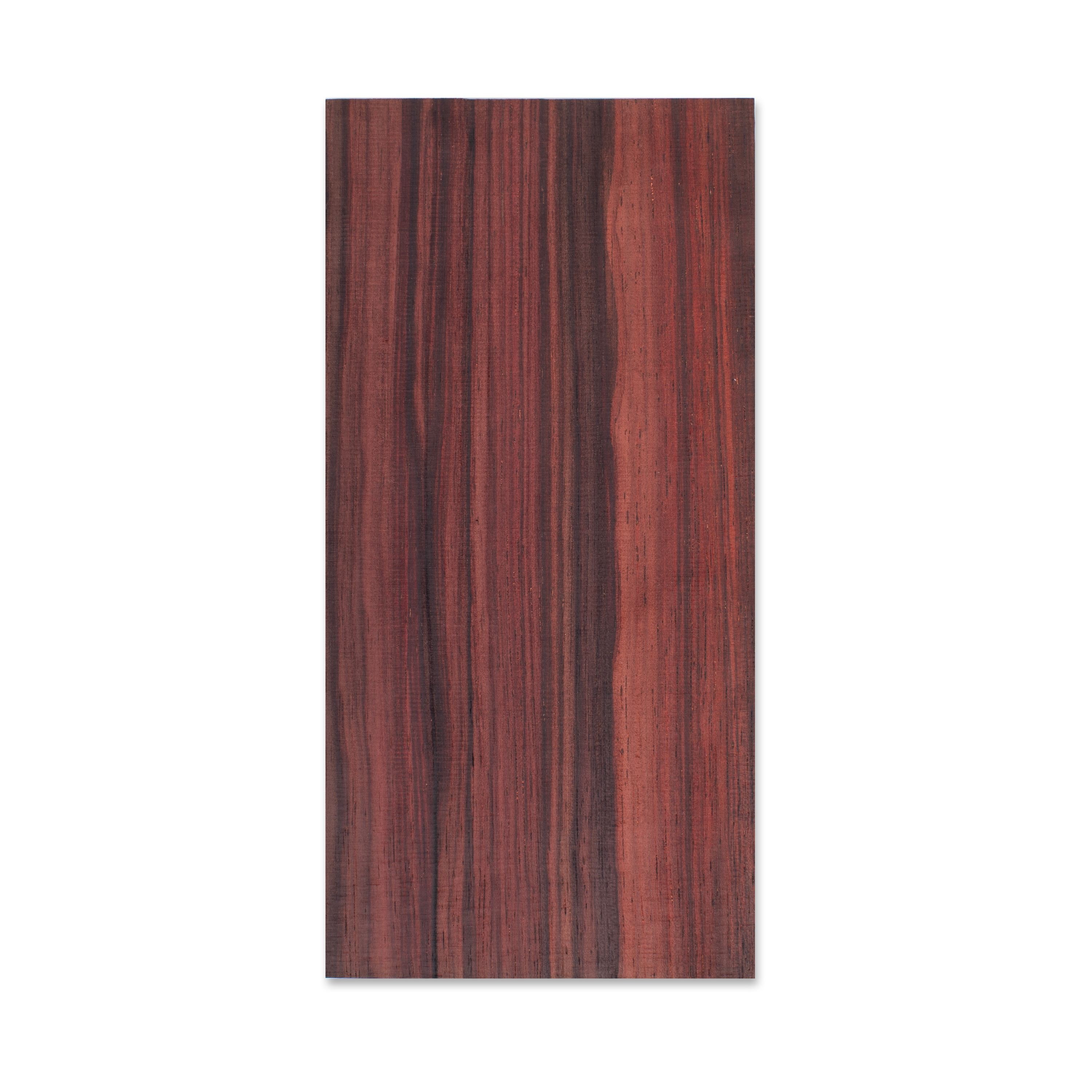
Dalbergia maritima
Approximate Dimensions:
4" x 7-7/8" x 5/32" (100mm x 200mm x 4mm)
Cannot ship outside USA
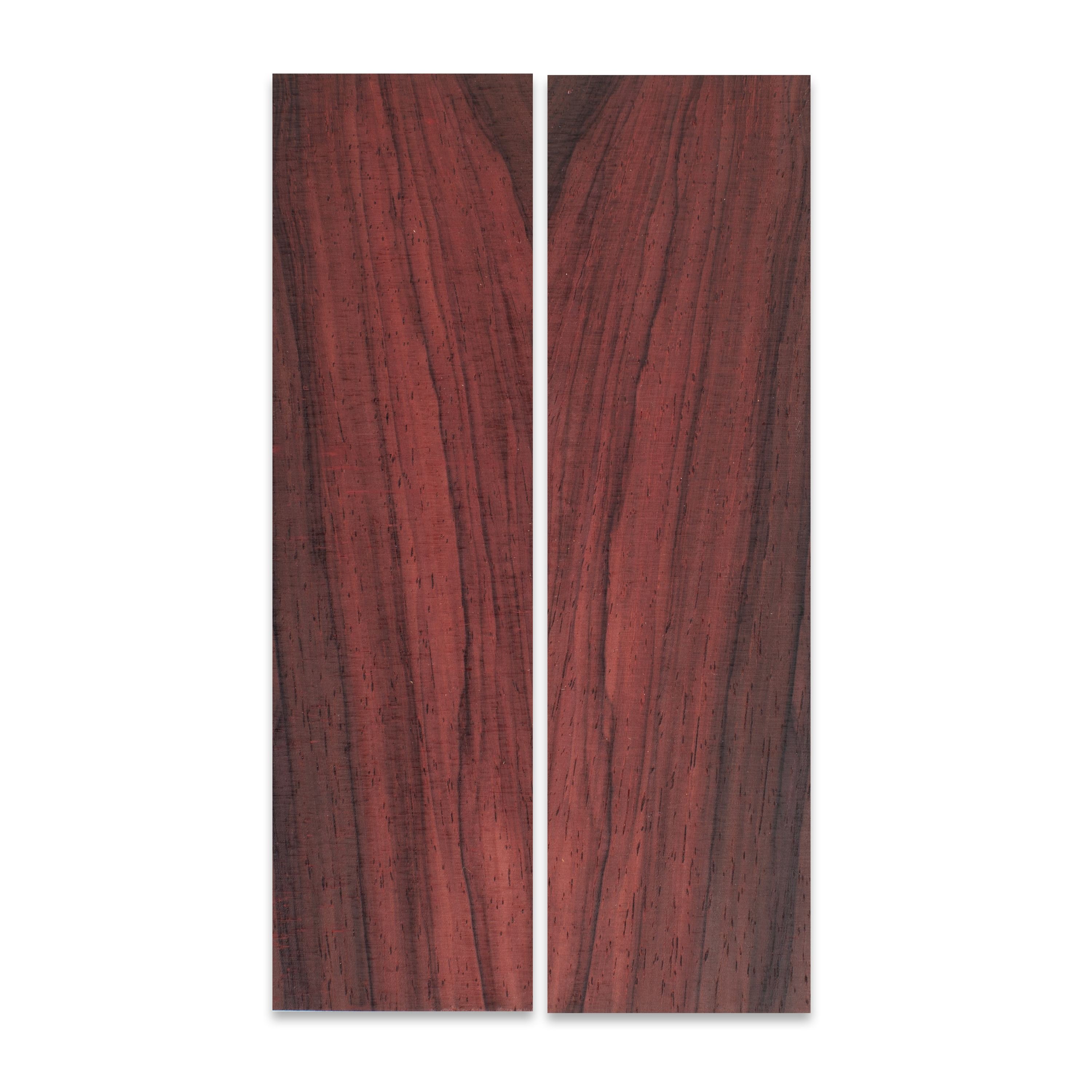
Dalbergia maritima
Approximate Dimensions of each half:
2-5/32" x 7-7/8" x 5/32" (55mm x 200mm x 4mm)
Item # 103870
Cannot ship outside USA
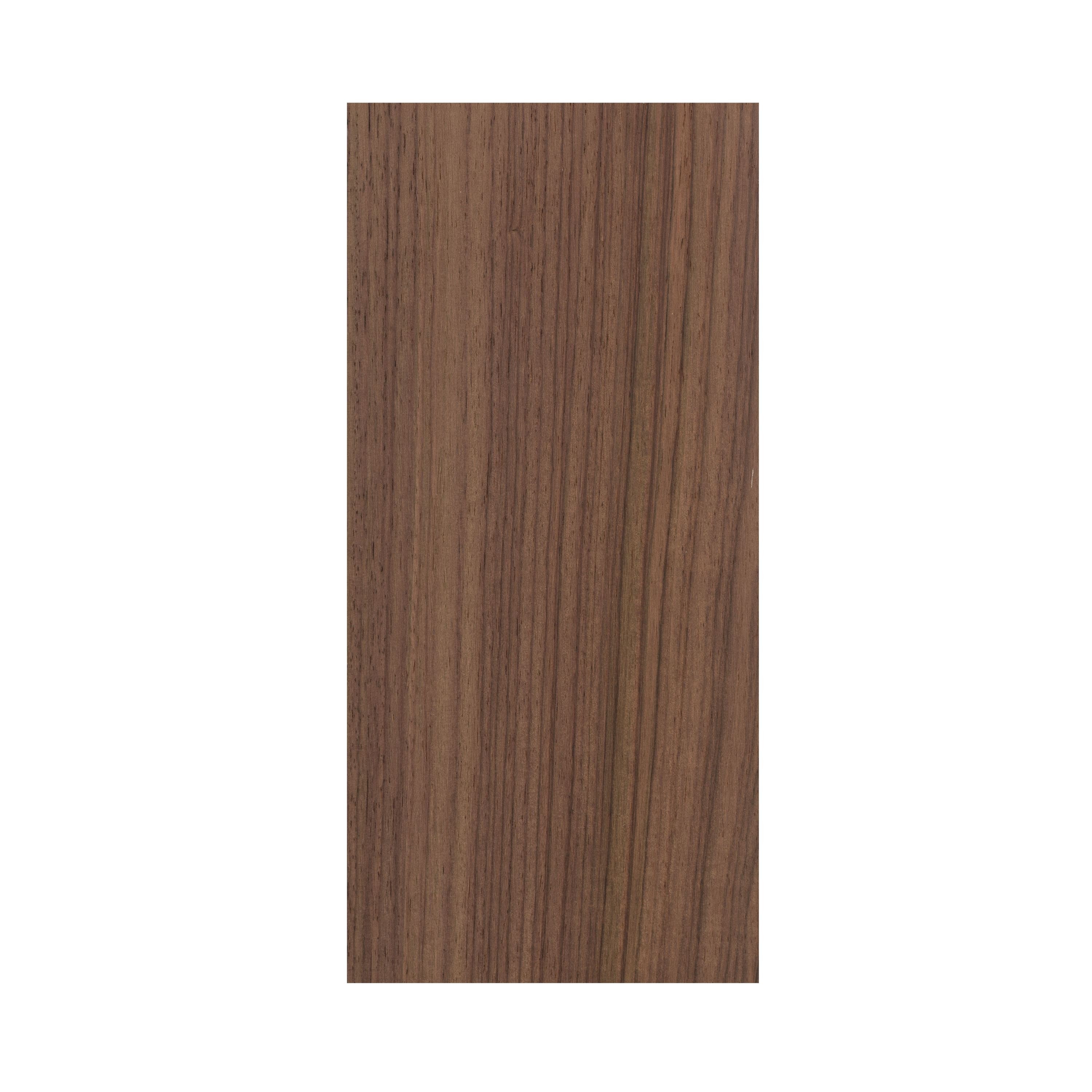
Dalbergia latifolia
Dimensions:
3-1/2" x 7" x 3/32" (89mm x 178mm x 2.38mm)
Cannot ship outside USA
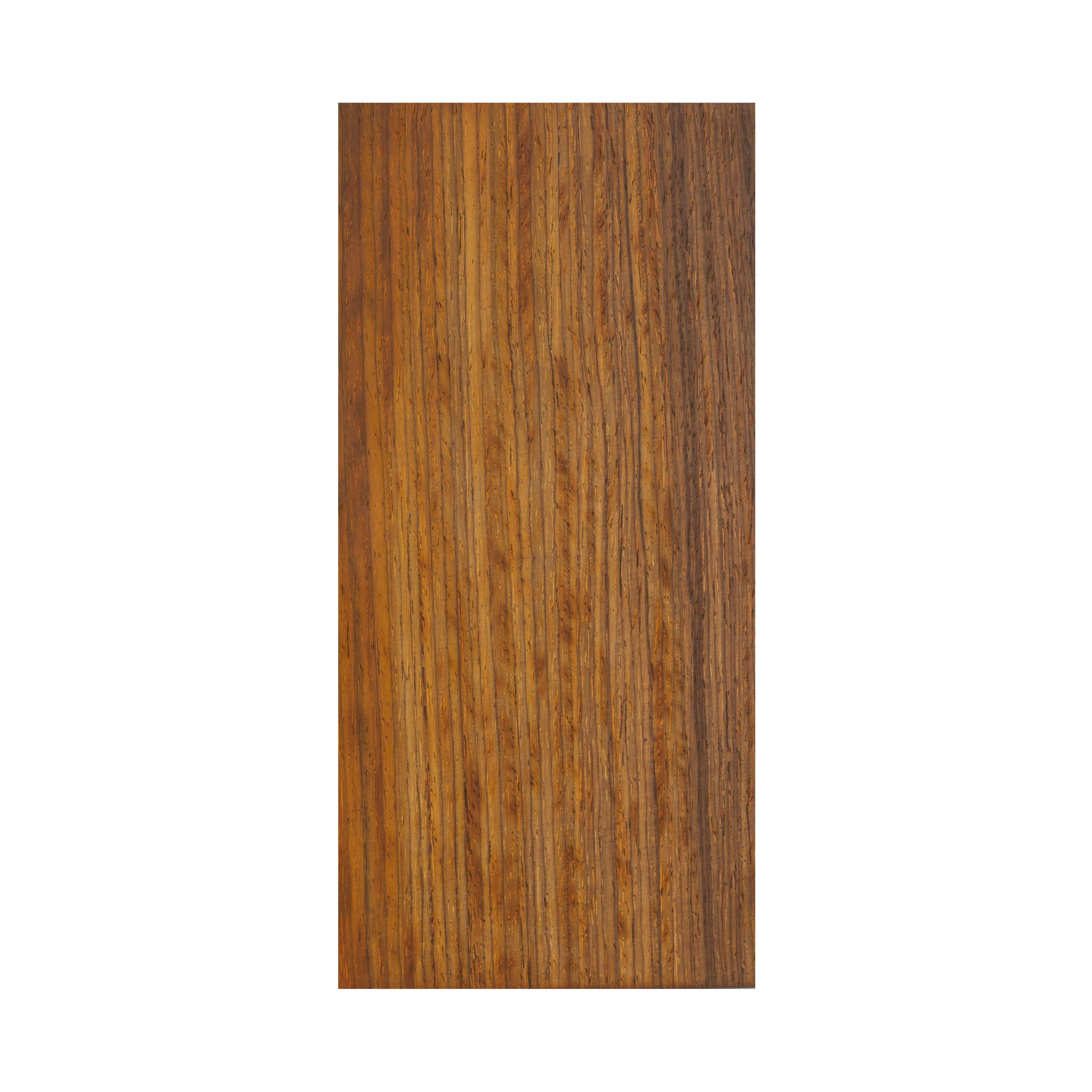
Dalbergia retusa
Dimensions:
3-1/2" x 7" x 3/32" (89mm x 178mm x 2.38mm)
Cannot ship outside USA
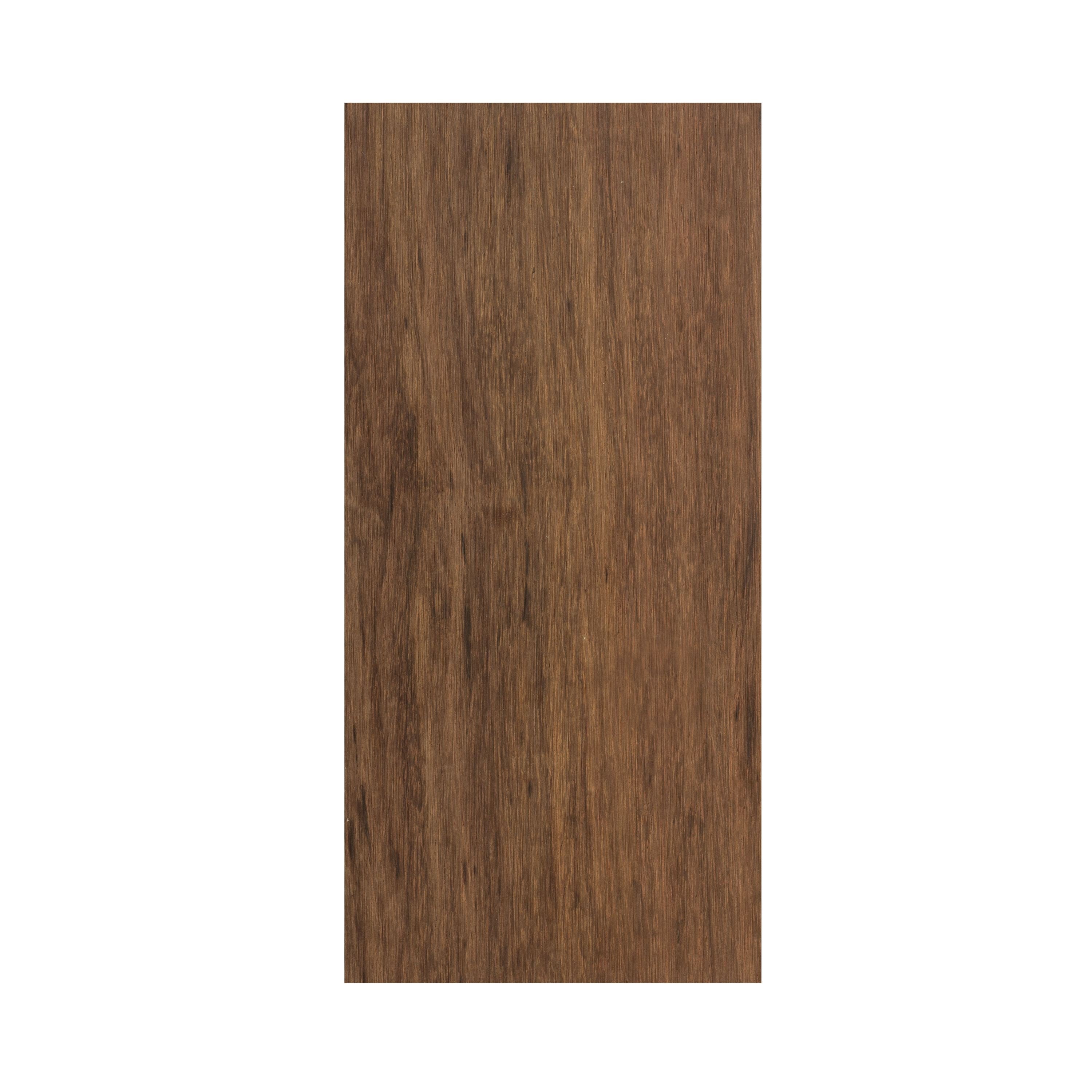
Platymiscium yucatanum
Dimensions:
3-1/2" x 7" x 3/32" (89mm x 178mm x 2.38mm)
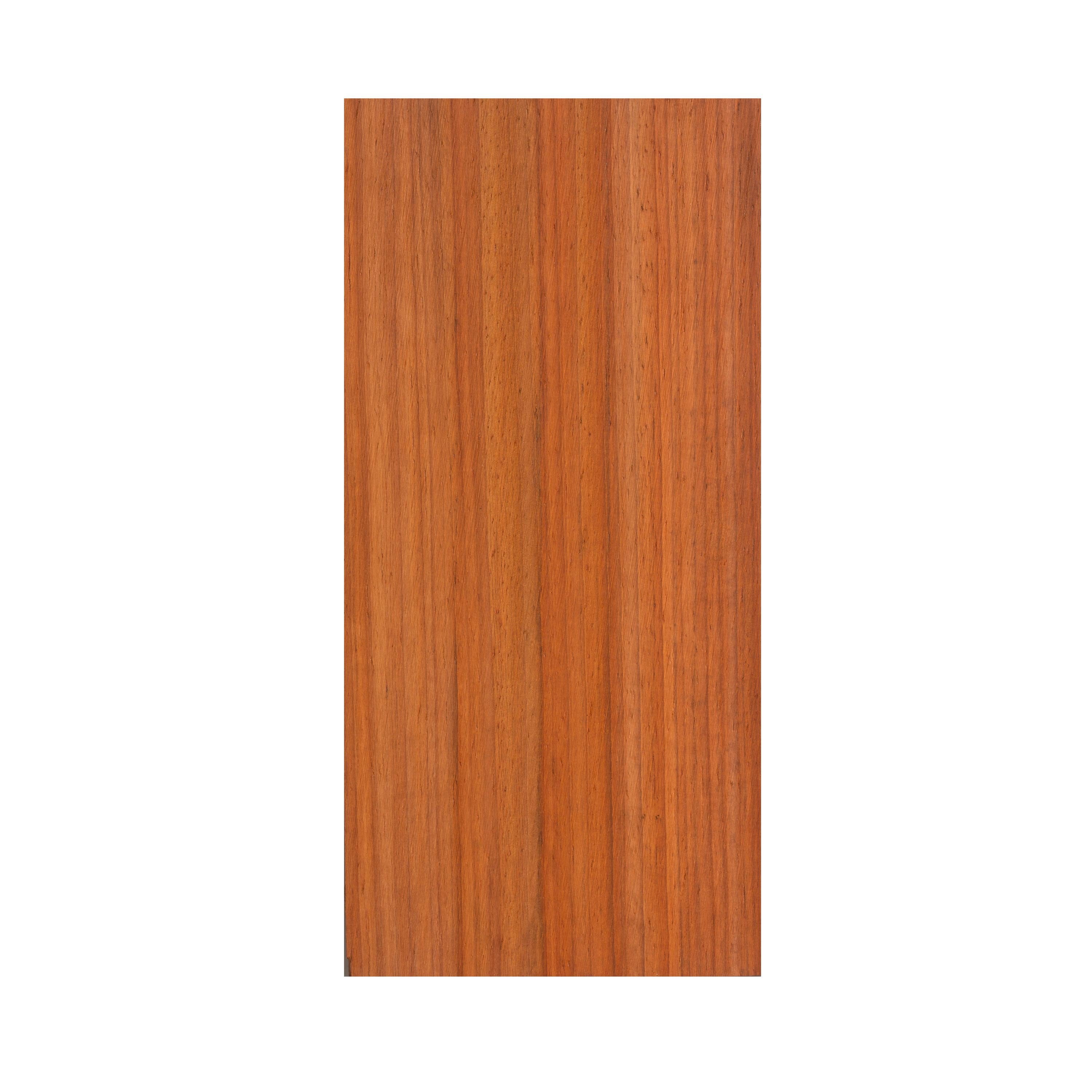
Pterocarpus soyauxii
Dimensions:
3-1/2" x 7" x 3/32" (89mm x 178mm x 2.38mm)
Cannot ship outside USA
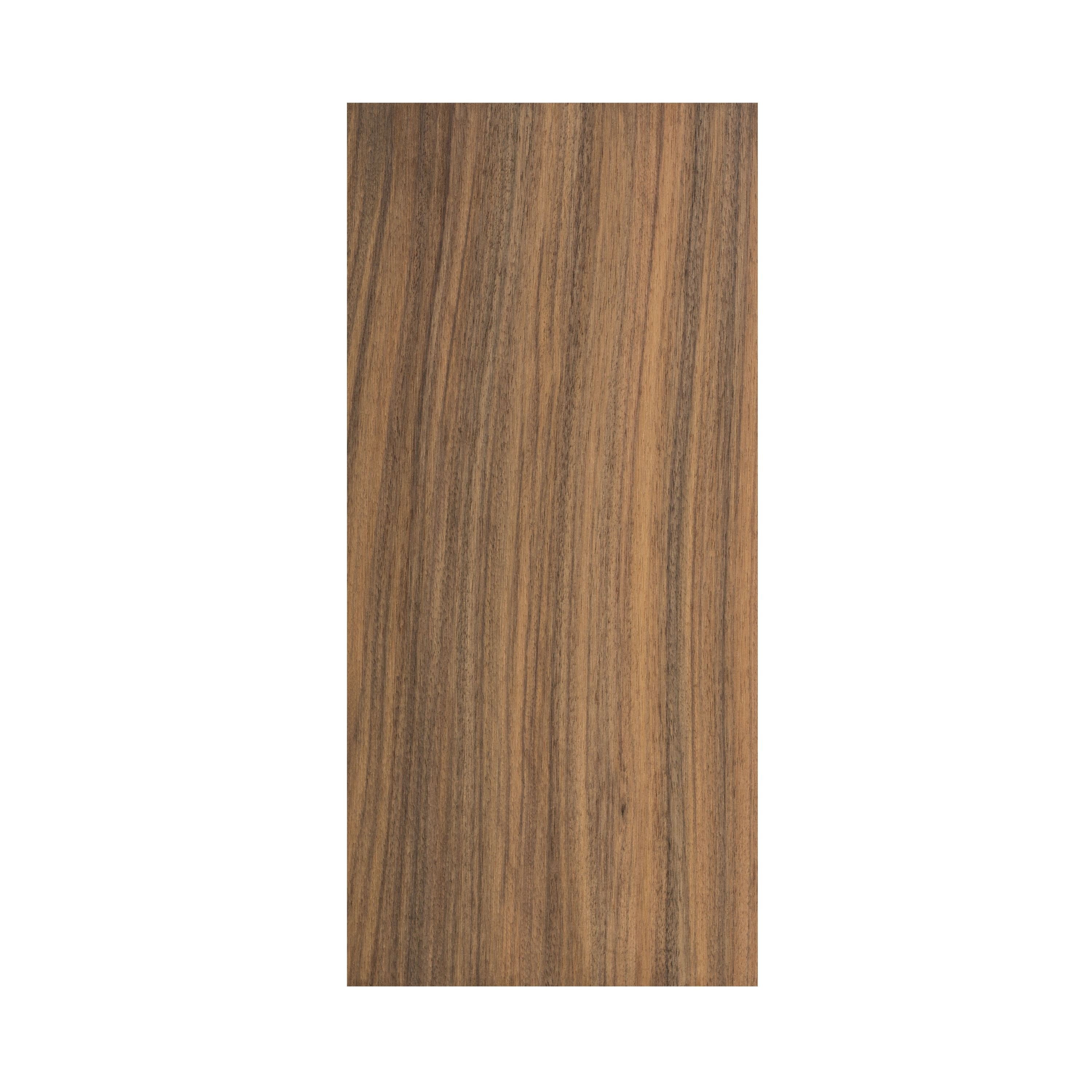
Machaerium scleroxylon
Dimensions:
3-1/2" x 7" x 3/32" (89mm x 178mm x 2.38mm)
Peghead Overlay Veneer
The peghead overlay is the face of your stringed instrument: the finishing touch of quality. Our veneers are large enough for guitar, banjo or mandolin. Classic or exotic, our high quailty veneers will help you define the final look of your custom instrument.
Ebony
Our Ebony (Diospyros crassiflora) comes from West Africa and tends to be more uniformly black than we have seen from other sources. However, most African ebony is not perfectly jet black, most boards have some visible grain and occasional streaks of greys and tans. We think these visual variations offer character and enhance the aesthetics of most guitars, but if you desire a perfectly dark, jet black appearance consider using our Black Fingerboard Stain to darken the board and create the desired visual effect.
Pale Moon Ebony
If you want your next build to make a statement, this is the species to do it. Pale Moon Ebony (Diospyros malabarica), also known as Black and White Ebony, features dramatic inky-black streaks across a creamy blonde base—each board a piece of natural art. We have several grades with the highest grades giving the most vibrant visual variation and the lower grades being more visually subtle. This wood is extremely rare. We acquired every piece our supplier had. When these are gone, they may be gone for good.
Brazilian Rosewood
Act fast! We only have a limited amount of these Brazilian Rosewood (Dalbergia nigra) overlays. It's visually stunning, with shades of black to chocolate brown coloring. The striking black grainlines range from intense spider-webbing to long, elegant waves. With commercial logging restricted in the 1960s and CITES regulation in the 1990s, these blanks are disappearing rapidly.
Madagascar Rosewood
Madagascar Rosewood (Dalbergia baroni) is the closest commercially available substitute for Brazilian Rosewood (Dalbergia nigra). Our overlays range from ones with strong variegation, black ink lines and beautiful color contrast, to ones with a more uniform, brown, straight grained appearance. If you're looking for a perfect old-school rosewood appearance these are what you want.
Bois de Rose
Rich and complex in both tone and color, Bois de Rose (Dalbergia maritima) is a very rare and very special tonewood. While a true rosewood from Madagascar, it is distinct from the more widely known Madagascar Rosewood (Dalbergia baronii). This wood showcases a deep wine-red color that oxidizes to a dark shade of purple, reminiscent of an eggplant. Thanks to our partnership with Madinter in Spain, we can legally source this extraordinary wood for our U.S. customers.
Indian Rosewood
For decades, Indian Rosewood (Dalbergia latifolia) has been the go-to choice for boutique builders and major manufacturers because it's beautiful, extremely stable, and often much less expensive than more exotic rosewoods. In recent years, there have been wide swings in the quality of Indian Rosewood, but our team has procured sustainable sources of some of the darkest, most even and straight-grained Indian Rosewood available anywhere.
Cocobolo
Cocobolo (Dalbergia retusa) is another true rosewood, that provides a rich, custom look to any instrument. Freshly sanded Cocobolo often appears somewhere between orange and red, but over time it oxidizes nicely to a deep burgundy—almost black—color.
Granadillo
Since all rosewoods are now part of the CITES treaty and international export is prohibited, Granadillo (Platymiscium yucatanum) has been rising in popularity among European and North American builders. It is an extremely inexpensive, dense, non-porous wood that has a familiar "rosewood look" without being a true Dalbergia. Granadillo's color ranges between sandy and "brick" brown and it oxidizes over time to a warm dark brown patina.
Padauk
Padauk (Pterocarpus soyauxii) is an opened grained wood that is easy to machine and glue, and offers an extremely beautiful, exotic look to your next custom build. This wood is extremely popular with high end electric guitar makers and its striking pink/red color and perfectly straight grain create a stunning visual effect.
Pau Ferro
In recent years Pau Ferro (Machaerium scleroxylon) has become more popular—especially with electric guitar builders—due to its exotic beauty, sustainability, and low cost—plus, it's non-porous surface makes finishing an absolute dream.
